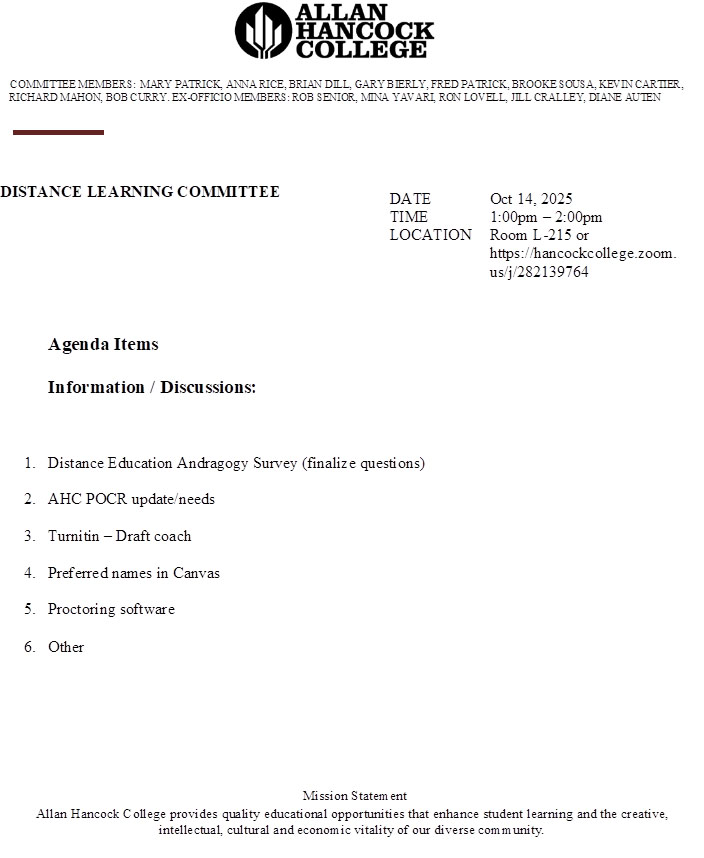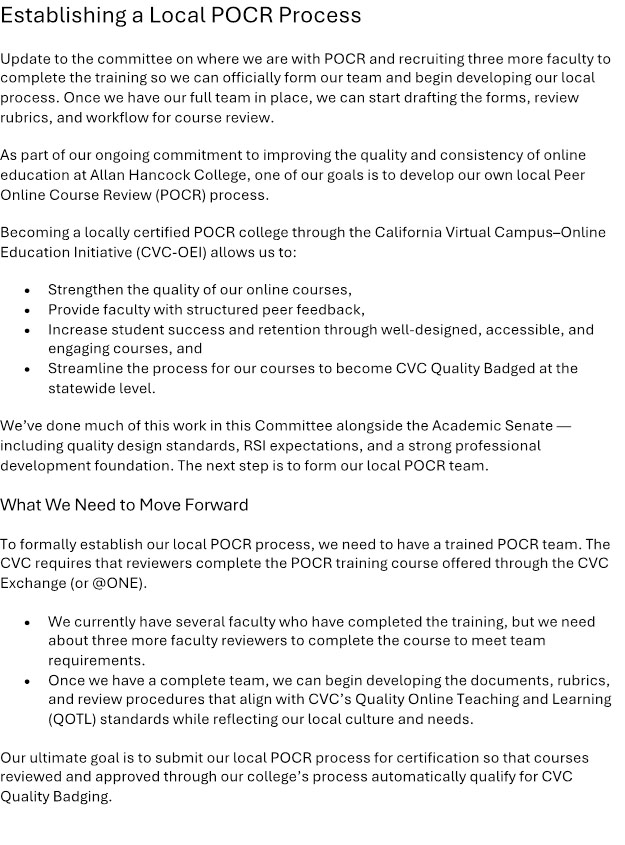PFA Update, DE & IEC, Oct. 16, 2025
Distance Ed and IEC (Institutional Effectiveness Council) meetings this week (both on Tuesday Oct. 14).
DE Committee
For the first time since I joined the committee, meeting materials were available on Sharepoint. The agenda (in full below):
- Distance Education Andragogy Survey (finalize questions)
- AHC POCR update/needs
- Turnitin – Draft coach
- Preferred names in Canvas
- Proctoring software
Notes: (1) The committee will conduct an anonymous evaluation of the Hancock DE course prospective faculty are required to take, probably sometime in November. (2) Hancock should have trained and locally approved “POCR evaluators.” POCR stands for “peer online course reviewer,” and once trained (the training takes ~40 hours), a faculty member can evaluate and approve Hancock DE courses. Approved courses appear on the statewide database of DE courses students from anywhere in the state can take and they are listed closer to the top of the list of sought after courses. (3) Turnitin has a tool Hancock pays for but does not use that allows students to submit their own work for a plagiarism report. The college will be turning it on; there was some discussion to indicate that “old fashioned” copy-and-paste plagiarism is no longer the central challenge—that spot has been taken by AI. (4) Starting next term, the college will turn on the tool in Canvas that allows students to designate their preferred name (Mike for Michael, Tere for Teresa, Bob for Robert, etc.). (5) The college (but not very many actual faculty) briefly used HonorLock, which is very expensive. That contract has ended and the college will pivot to Respondus.
IEC
The committee lacked quorum at the start time, though it was achieved shortly after and all members were present by the end. The meeting was unusual in that there was extended discussion of two topics.
(1) The college adopted a new Program Review process a couple years back. Patrick McGuire in Industrial Technology has led that initiative and there is interest in IEC conducting a formative assessment of the initiative. According to accreditation standards, student learning outcome assessment should drive program review and program review should driving planning and budget: are students learning what we want? If not, can we allocate resources that will improve learning?
Although program review should effect all campus units, it is mostly focused on instructional programs. IEC is an odd place to be having that discussion—I am the only instructional faculty on the committee (co-chair Fred Patrick is the college’s DE coordinator and he does teach, and the FA member is Sandra Kramer, a counselor). I pointed out both the dearth of instructional faculty in the room and also noted that part-time faculty teach a very large share of classes at Hancock and yet they are mostly left out of assessment and program review processes? Most of this discussion arose from the agenda item for “Action Items for Future Meetings.”
(2) There was brief discussion of “Time Management and Scheduling,” and I suggested that Hancock should explore developing a Master Calendar. The first step would be to create a document that makes it clear in one place when governance meetings take place. A second step would be to potential shift some meetings in increase participation.

